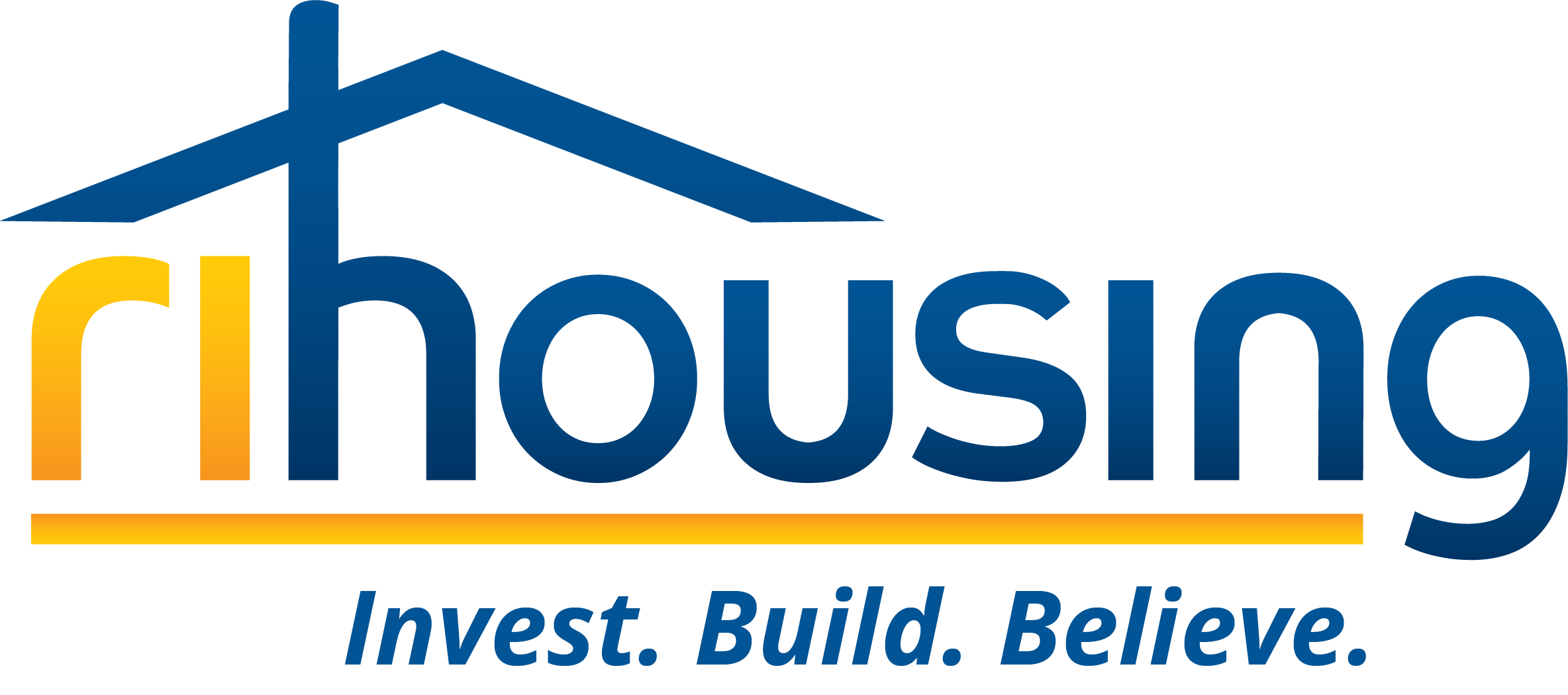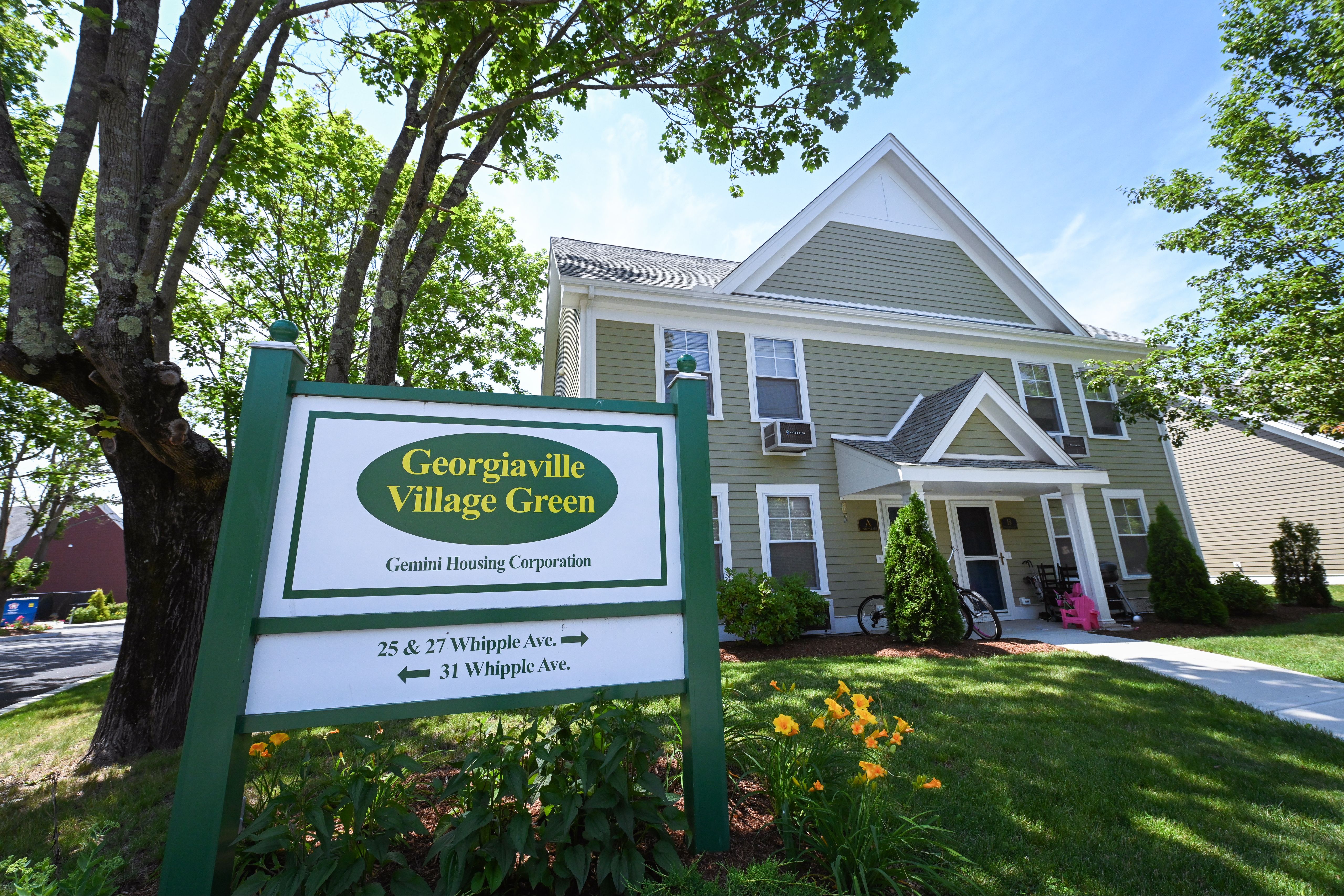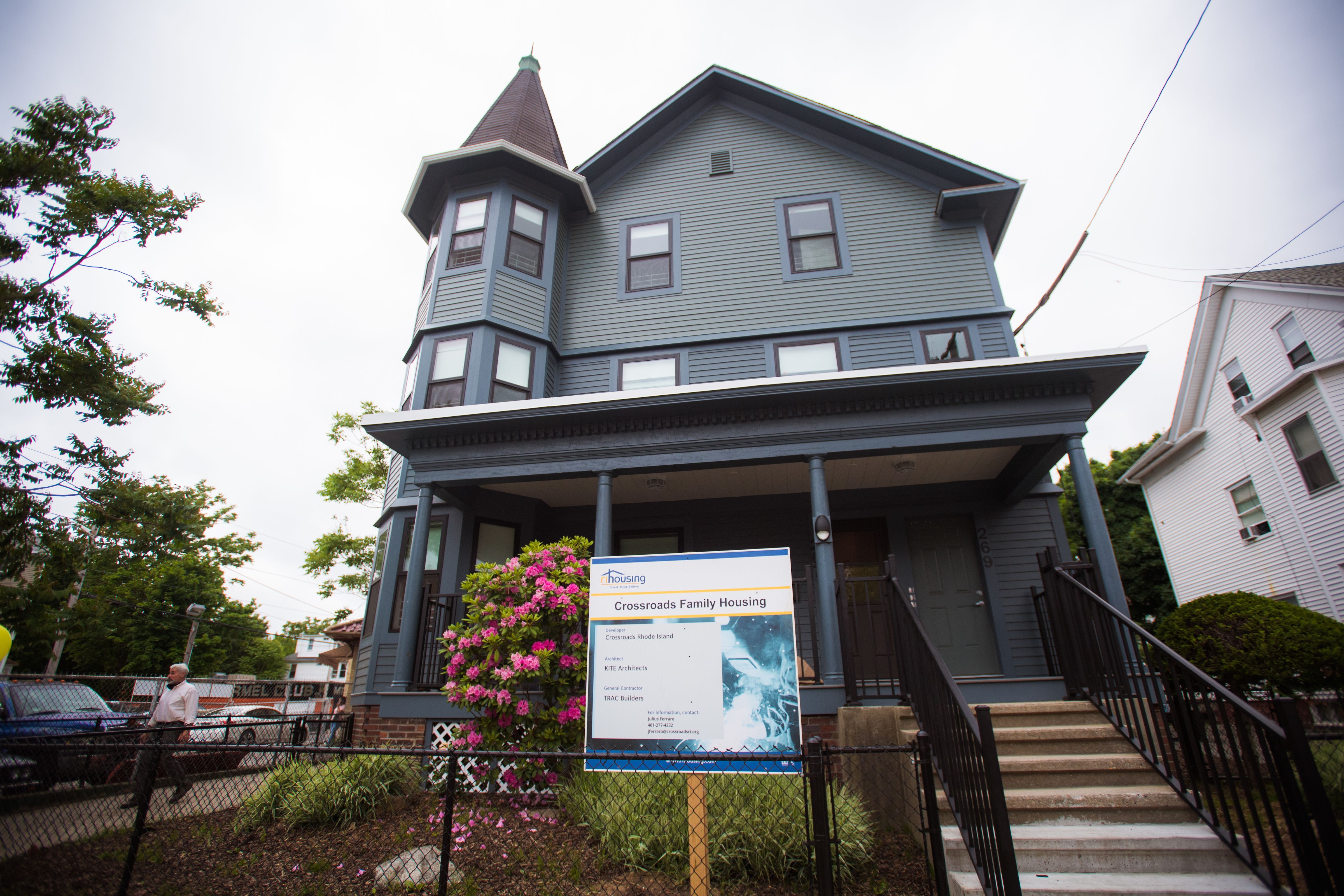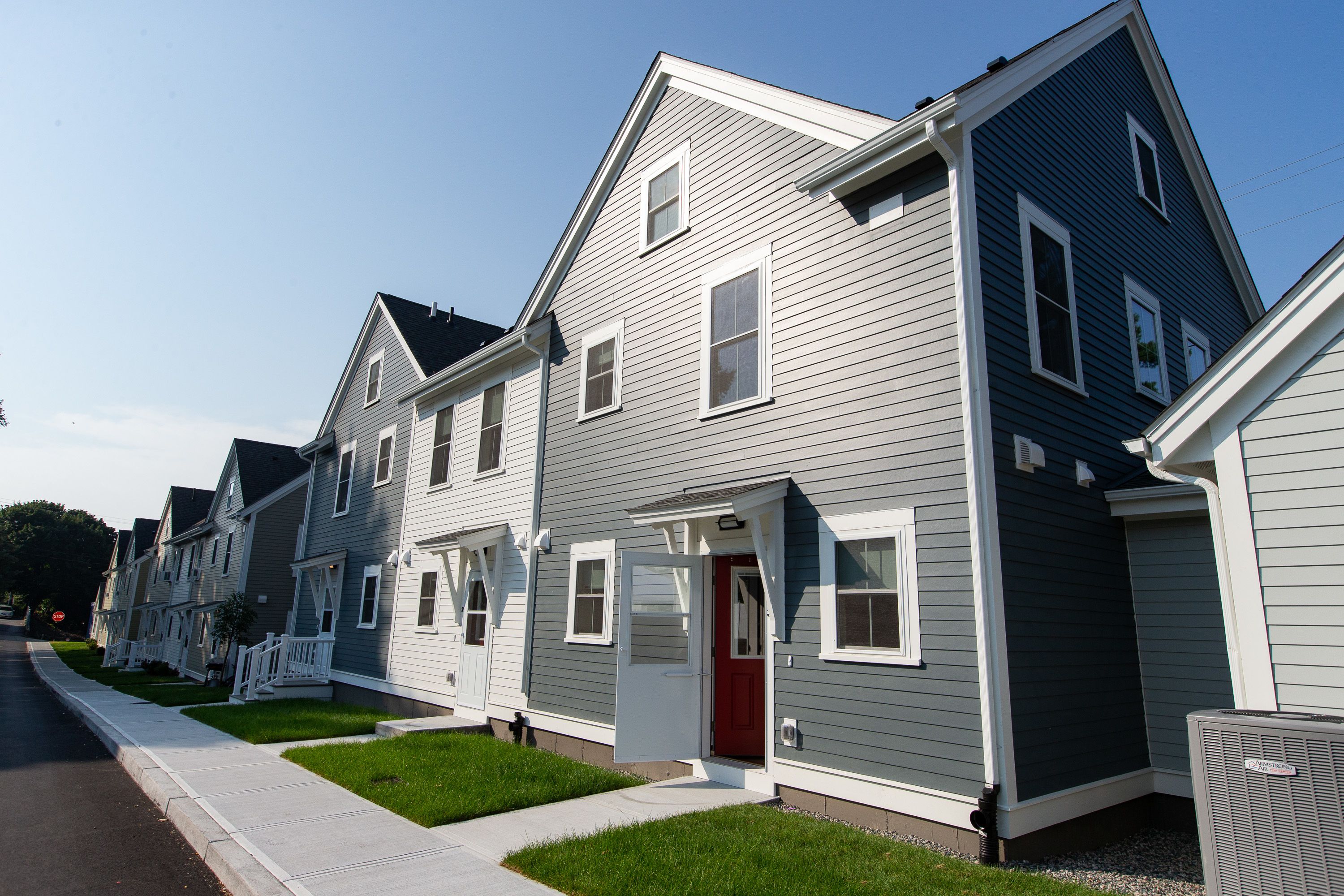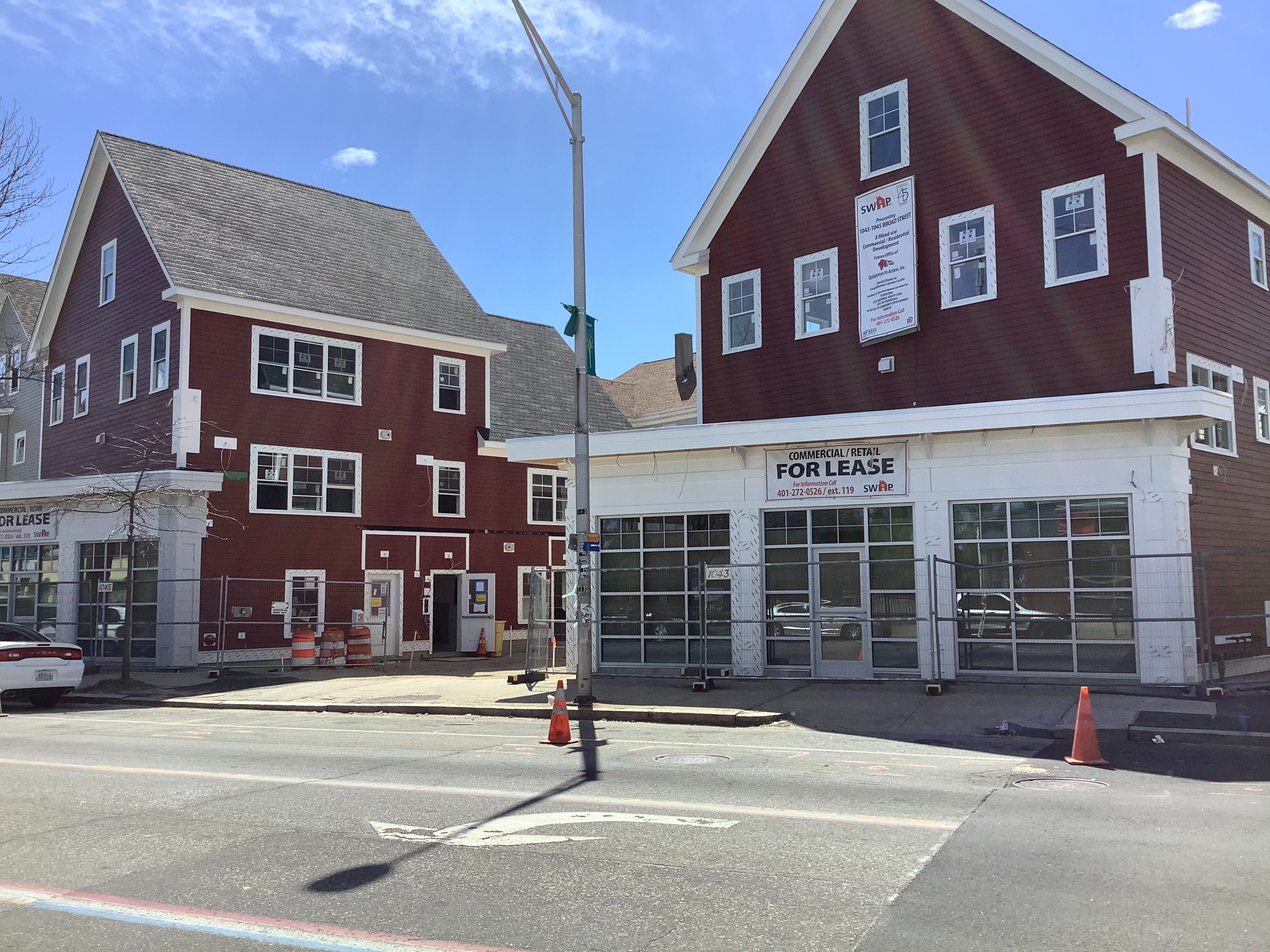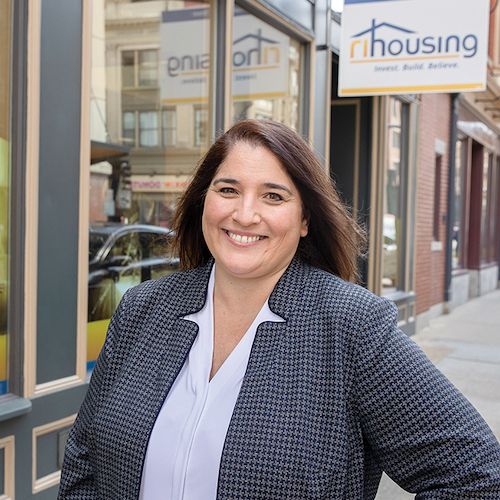About
Learn about RIHousing including our ESG Program, News & Press Releases, Projects, and Team.
Talk to us
Have questions? Reach out to us directly.
Learn about RIHousing including our ESG Program, News & Press Releases, Projects, and Team.
About RIHousing
- Established by RI General Assembly
- 1973
- Bonds and Notes Outstanding (as of 6/30/2024)
- $2.39 Billion
RIHousing is a self-supporting public agency created by the General Assembly in 1973 to provide financing to increase the supply of affordable housing for families with low or moderate incomes.
Pursuant to its enabling legislation, RIHousing is authorized to issue bonds and other obligations to fulfill its corporate purpose. In addition to its bond programs, the corporation administers the Section 8 Housing Assistance Program, the HOME Investments Partnership Program, the federal Low-Income Housing Tax Credit, as well as other state and federal programs.
The corporation supports its staff and operating expenses through bond fund earnings, federal grant administration fees and interest income. RIHousing does not receive state appropriations for its operating budget.
Image Gallery
ESG Program
Learn about our environmental, social, and governance program, and how we bring those values to life with green bonds, sustainable projects, and more.
News
News
February 10, 2025
PROVIDENCE, RI – RIHousing, the Rhode Island Office of Energy Resources (OER), and Rhode Island Energy announced the release of a Request for Proposals for the fourth round of funding from the Zero Energy for the Ocean State (ZEOS) program. This latest round offers over $1.2 million in funding to assist in the development of energy-efficient housing in Rhode Island.
“The ZEOS program continues to be a vital funding source for developers committed to building affordable homes in Rhode Island,” said Carol Ventura, CEO & Executive Director of RIHousing. “We’re proud to administer ZEOS alongside our program partners and remain dedicated to supporting the construction of energy-efficient developments throughout the state.”
ZEOS, a partnership program between RIHousing, OER and RI Energy, aims to support development teams that want to design and construct affordable, energy-efficient housing for low- and moderate-income Rhode Islanders. Zero Energy Buildings (ZEBs) are energy-efficient buildings with zero net energy consumption, meaning the total amount of energy used by a building on an annual basis is less than or equal to the amount of renewable energy created on the site. Including energy-saving technology — like air source heat pumps, solar arrays, and electric vehicle charging – help to make these homes truly affordable to the residents by drastically lowering utility costs.
“OER is committed to making investments in collaboration with RIHousing and RI Energy on energy efficient housing with our affordable housing community throughout Rhode Island,” said Acting Rhode Island Energy Commissioner Chris Kearns. “Energy efficient buildings provide long-term energy savings for households and contribute to the state’s energy emission reductions to meet our Act on Climate objectives.”
This fourth round of ZEOS funding is the highest yet since the program started in 2019. The most recent round, awarded in 2023, went to four developments across the state: Tempo and Summer Street in Providence, Sandywoods in Tiverton, and Cardinal Lane in Hopkinton. To date, ZEOS has supported the development of 418 net zero housing units.
“We take great pride in this effort, along with RIHousing and the OER, to support our communities as they pursue sustainable and efficient energy measures,” said Greg Cornett, Rhode Island Energy president. “The ZEOS program paves a path for more of our residential customers—including those of low and moderate incomes—to access the many benefits of energy efficiency.”
The over $1.2 million in funding is subject to availability. Submissions for this RFP will be accepted until April 7, 2025 via: https://osa.rihousing.com/funds/94. Total awards may not exceed $300,000 per project and are limited to $18,200 per unit for 1-4 family developments. Buildings must qualify as ZEB (according to US Department of Energy’s ZEB definition) and participate in RI Energy’s Residential New Construction Program.
News
February 3, 2025
Opportunity for RI homebuyers and homeowners to create an additional dwelling unit on their property
PROVIDENCE, RI – Last year the Rhode Island General Assembly passed, and the Governor signed, legislation to widen the net of qualified property owners who can add Accessory Dwelling Units (ADUs) to their homes. The bill was sponsored by Representative June Speakman and Senator Victoria Gu and spearheaded by House Speaker Joseph Shekarchi; it’s being supported by RIHousing’s Federal Housing Administration (FHA) 203(k) Loan program.
“Tackling the housing crisis takes a whole-of-government approach and bold strategies,” said Governor Dan McKee. “The loan program supports increased access to housing, which opens the door to better health outcomes and a stronger economy for Rhode Island. I’m proud to have worked with Speaker Shekarchi, Senate President Ruggerio, and the legislature on this important legislation.”
“Congratulations to RIHousing for developing this creative program to help homeowners and increase housing stock,” said House Speaker K. Joseph Shekarchi. “ADUs are a great way to increase density without changing the character of the surrounding neighborhood. I am thrilled that RIHousing is making it possible for more Rhode Islanders to benefit from the legislation we passed in the General Assembly.”
“I have spoken to homeowners in my area who want to renovate their garage or a space within their home into an ADU but don’t have the funds readily available, so I’m glad that RIHousing is supporting homeowners through the 203(k) financing program. ADUs offer the ‘missing middle:’ housing that is smaller, more affordable and smartly repurposes our existing buildings and garages. Whether homeowners use their ADUs to receive additional income through a long-term rental, or house a loved one, friend or onsite caregiver, it’s a win-win,” said Sen. Victoria Gu (D-Dist. 38, Westerly, Charlestown, South Kingstown).
“As the House sponsor of the ADU legislation, I have received many inquiries from constituents looking for help financing the construction of such accessory units,” said Rep. June Speakman (D-Dist. 38, Bristol, Warren). I am delighted that this program provides that needed assistance. ADUs are a great way to gently expand housing availability in our communities and an essential tool for addressing the housing needs of Rhode Islanders.”
RIHousing offers the FHA 203(k) Loan program to help Rhode Islanders take advantage of this financing opportunity. The program offers assistance to homebuyers or current homeowners who wish to renovate and/or expand their properties with an ADU. The addition of an ADU can mean multigenerational living on one property or a space to rent to generate additional income.
More on ADUs
ADUs are smaller, independent residential units located on the same lot as a primary single- or multi-family home. Rhode Island homeowners using the RIHousing 203(k) Loan can build an attached or in-home unit on their property if it meets certain criteria; each town may have its own specific regulations, so it’s best to consult a qualified contractor who is familiar with the local requirements.
“RIHousing is committed to expanding housing options across our state,” said Carol Ventura, CEO & Executive Director of RIHousing. “As we continue to deal with a tight housing market, creative ideas are key to increasing housing options that more Rhode Islanders can afford. Giving homeowners the option to build or renovate an ADU can open doors for homeowners and renters.”
ADUs are an additional, flexible solution to Rhode Island’s current housing shortage. They can be vital for a family, letting older members – like parents and grandparents – live beside younger members while still maintaining independence. ADUs also let younger members, like recent college graduates, be near family while having their own space. Or an ADU can become a rental opportunity for the property owner. In addition to expanding livable space on the property, ADUs can increase a home’s value. AARP has more information about the ABCs of ADUs: https://states.aarp.org/rhode-island/the-abcs-of-adus.
“Rhode Island’s housing needs are evolving, and we must be innovative in our approach to meet those needs,” said Secretary of Housing Deborah Goddard. “By supporting the development of Accessory Dwelling Units through programs like the FHA 203(k) loan program, we are empowering homeowners to enhance their properties while contributing to a more affordable and diverse housing market – strengthening multigenerational living and giving homeowners the opportunity to create new rental spaces that can support families and bolster the local economy.”
203(k) Loan
In addition to individuals or families purchasing a new home, RIHousing is now offering the FHA 203(k) as a refinance option for current homeowners who wish to build or renovate an ADU. Homebuyers or homeowners utilizing a FHA 203(k) Loan will receive a loan for both the purchase or refinance of the home and the proposed project.
Projects must be completed within 12 months of the purchase or refinance date. The homebuyer or homeowner must complete RIHousing’s FHA 203(k) homebuyer education class prior to closing, which is offered online for $15. The homebuyer or current homeowner must also select an FHA-approved RI 203(k) consultant and a RI licensed and insured contractor.
Interested homebuyers or homeowners can visit https://www.rihousing.com/adu/ or reach out to the RIHousing Loan Center or a RIHousing Participating Lender for more information.
News
June 3, 2024
RIHousing encourages community members to attend the public meetings and/or pop-up events to learn about the project and share ideas.
Providence, RI – RIHousing is holding multiple public meetings and pop-up events regarding the U.S. Department of Housing and Urban Development (HUD) FY 2025-2029 Consolidated Plan, FY 2025 Annual Action Plan and Analysis of Impediments to Fair Housing. The Consolidated Plan and Annual Action plan are required documents for the State’s federal funding programs of the Community Development Block Grant (CDBG), HOME, Emergency Solutions Grants (ESG) and National Housing Trust Fund. Meeting times and locations are as follows:
Public Meetings:
- Monday, June 10, 2024, 6:30PM-8:00PM at the Woonsocket Harris Public Library, 303 Clinton St, Woonsocket, RI 02895
- Tuesday, June 11, 2024, 12:00PM-2:00PM at Warwick Library Central Branch, 600 Sandy Ln, Warwick, RI 02889
- Tuesday, June 11, 2024, 4:00PM-6:00PM at the North Kingstown Free Library, 100 Boone St, North Kingstown, RI 02842
- Wednesday, June 12, 2024,12:00PM-2:00PM at the Barrington Library, 281 S. County Rd, Barrington, RI 02806
Pop-Ups:
- Tuesday, June 11, 2024, 9:00AM-10:45AM at the Warwick Library Central Branch Lobby, 600 Sandy Ln, Warwick, RI 02889
- Wednesday, June 12, 2024, 4:00PM-6:00PM at the Hope & Main Makers Market, 691 Main St, Warren, RI 02885
RIHousing is a self-supporting, quasi-public agency created in 1973 to provide financing and resources to offer housing options to Rhode Islanders. RIHousing works to ensure that all people who live in Rhode Island can afford an attractive home that meets their needs.
By May 2025, RIHousing will adopt the new Five-Year Consolidated Plan and Annual Action Plan which will describe Rhode Island’s affordable housing and community development funding priorities and goals for the next five years. It will also describe how the State will plan on using its federal funds for projects in FY 2025 to address the identified high priority needs. Additionally, the Analysis of Impediments to Fair Housing Choice (AI) will be completed in early 2025 and will identify barriers to housing choice for members of the protected classes. The AI will also include a fair housing action plan that identifies barriers to fair housing and a plan to address those barriers.
Public input is essential to the planning process to help shape future affordable housing and community development priorities in Rhode Island. The public meetings and pop-ups will give community members an opportunity to learn about the Consolidated Plan, the Annual Action Plan and Analysis of Impediments to Fair Housing and share their thoughts on the region’s existing housing and community development needs.
Projects
View All Projects
Team
Talk to us
Have questions? Reach out to us directly.
